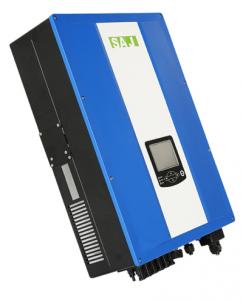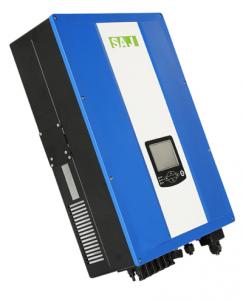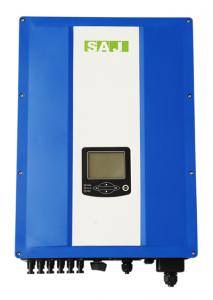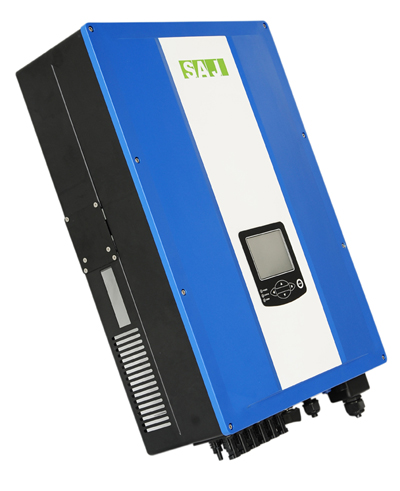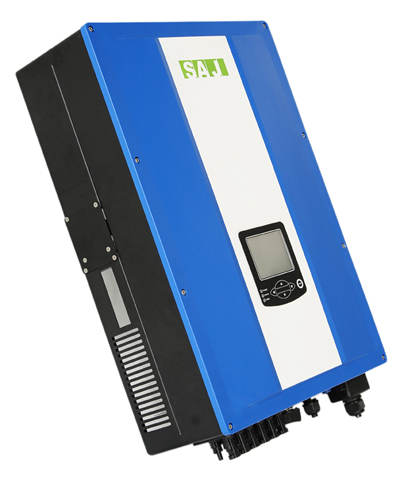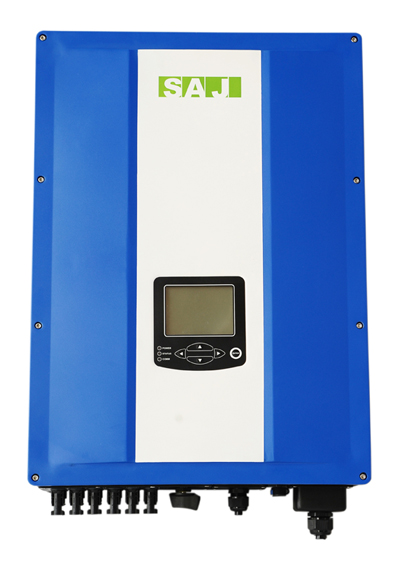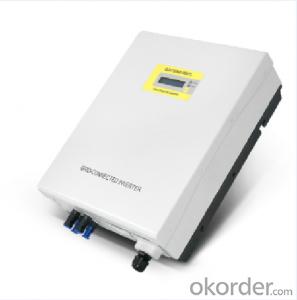Solar Inverter Outside On Grid Solar Inverter Suntrio-TL5K with 2MPPT
- Loading Port:
- Guangzhou
- Payment Terms:
- TT OR LC
- Min Order Qty:
- 1 watt
- Supply Capability:
- 3000 watt/month
OKorder Service Pledge
OKorder Financial Service
You Might Also Like
Suntrio-TL5K/6K/8K/10K PV inverters are transformerless inverters with efficiency of up to 97.5%. Multi-MPPT inputs provides higher flexibility for the project installation. Stainless steel housing and IP65 protection guarantee use both indoor and outdoor for long. The series inverters are ideally suited for medium and commercial PV projects of up to MW range.
1. Leading technology
· Max. efficiency 98.0%
• MPPT accuracy up to 99.9% efficiency
• Compliant with VDE-AR-N 4105
2. User-friendly
• 5 inch LCD display with comprehensive information
• Embedded webserver monitoring
• Easy installation
3. Flexible
• Multi-country configuration
• RS485 / Ethernet / Wi-Fi communication
• Wide range of DC input voltage
• IP65 for indoor and outdoor
4. Certificates: TUV,SAA,G83,ISO9001,ISO14001,etc.
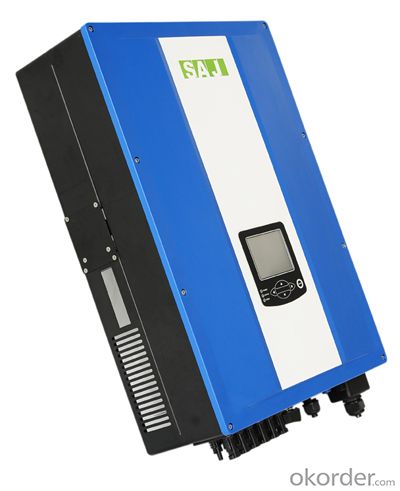
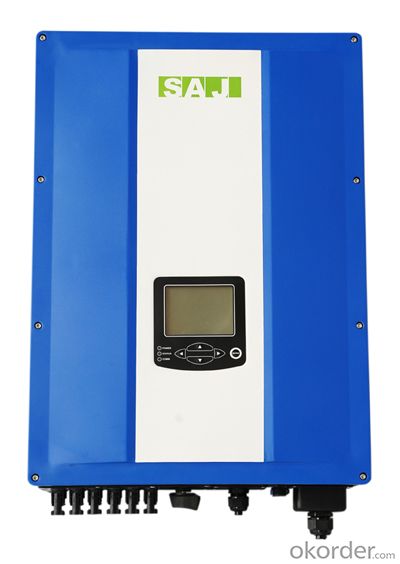
FAQ
1. How long will my inquiry get response?
Your inquiry related to our products or prices will be replied within 24 hours.
2. Can I get professional service and suggestion?
Well-trained and experienced staffs to answer all your questions in fluent English.
3. Do you accept OEM or customized design?
OEM & ODM, any your customized lightings we can help you to design and put into product.
4. What if I need specific design?
Distributorship are offered for your unique design and some our current models.
- Q: Is the grid side of the grid and the inverter?
- The grid load side of the grid is the grid. The inverter is an important part of the PV grid-connected system and can not be regarded as an external load. Photovoltaic power generation system is included in both grid and off-grid.
- Q: Can a solar inverter be used with a solar-powered educational system?
- Yes, a solar inverter can be used with a solar-powered educational system. A solar inverter is responsible for converting the direct current (DC) produced by solar panels into alternating current (AC) that can be used to power electrical devices. In the case of a solar-powered educational system, the solar inverter plays a crucial role in converting the DC energy generated by the solar panels to AC energy that can be utilized by the educational equipment, such as computers, projectors, or other electrical devices, thereby enabling the system to function efficiently.
- Q: How does a solar inverter handle voltage drop?
- A solar inverter is designed to handle voltage drop by continuously monitoring the voltage level of the solar panels. If the voltage drops below a certain threshold, the inverter adjusts its internal electronics to compensate for the drop and ensure a consistent output voltage. This allows the inverter to maintain optimal performance and efficiency even in situations with voltage fluctuations or drops.
- Q: How does a solar inverter handle grid synchronization during startup?
- A solar inverter handles grid synchronization during startup by employing advanced control algorithms. It continuously monitors the grid voltage and frequency, aligns itself with the grid parameters, and gradually increases its output power to match the grid. This synchronization process ensures that the solar inverter seamlessly integrates with the grid and provides stable and synchronized power generation.
- Q: Can a solar inverter be used in areas with high levels of dust or pollution?
- Yes, a solar inverter can be used in areas with high levels of dust or pollution. However, it is important to regularly clean and maintain the inverter to ensure optimal performance and prevent any damage caused by dust or pollution accumulation.
- Q: Grid-connected inverter is generally divided into photovoltaic power generation grid-connected inverter, wind power grid-connected inverter, power equipment and grid-connected inverter and other power generation equipment power generation inverter.
- Grid-connected inverter is generally used with large-scale photovoltaic power plant system, a lot of parallel PV string is connected to the same set of inverter DC input, the general power of the use of three-phase IGBT power module, power
- Q: How does a solar inverter handle shading or partial obstruction of solar panels?
- A solar inverter typically addresses shading or partial obstruction of solar panels by employing a technology called maximum power point tracking (MPPT). This technology allows the solar inverter to constantly monitor the output of each individual solar panel and optimize the power generation by adjusting the voltage and current levels. By doing so, it minimizes the impact of shading or obstruction on the overall system performance, ensuring maximum energy production even in less than ideal conditions.
- Q: What is the role of ground fault protection in a solar inverter?
- The role of ground fault protection in a solar inverter is to detect and mitigate any potential faults or abnormalities in the system's grounding. It ensures the safety of the system and personnel by quickly identifying and isolating ground faults, preventing electrical shock hazards and damage to the equipment.
- Q: Can a solar inverter be used with different types of communication interfaces?
- Yes, a solar inverter can be used with different types of communication interfaces. Most modern solar inverters are designed to be compatible with various communication protocols such as Wi-Fi, Ethernet, RS-485, and Bluetooth. This allows for easy integration and communication with different monitoring systems, smart devices, and the grid.
- Q: Can a solar inverter be used with a single solar panel?
- Yes, a solar inverter can be used with a single solar panel. The purpose of a solar inverter is to convert the direct current (DC) produced by the solar panel into alternating current (AC) that can be used to power electrical devices or be fed into the electrical grid. Even with a single solar panel, the inverter can still perform this function effectively.
Send your message to us
Solar Inverter Outside On Grid Solar Inverter Suntrio-TL5K with 2MPPT
- Loading Port:
- Guangzhou
- Payment Terms:
- TT OR LC
- Min Order Qty:
- 1 watt
- Supply Capability:
- 3000 watt/month
OKorder Service Pledge
OKorder Financial Service
Similar products
Hot products
Hot Searches
Related keywords
